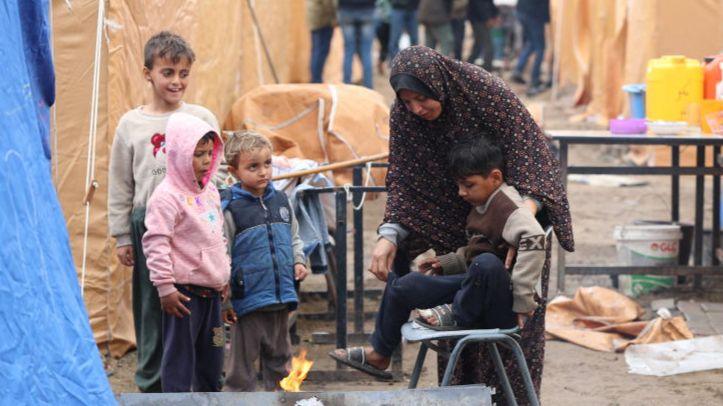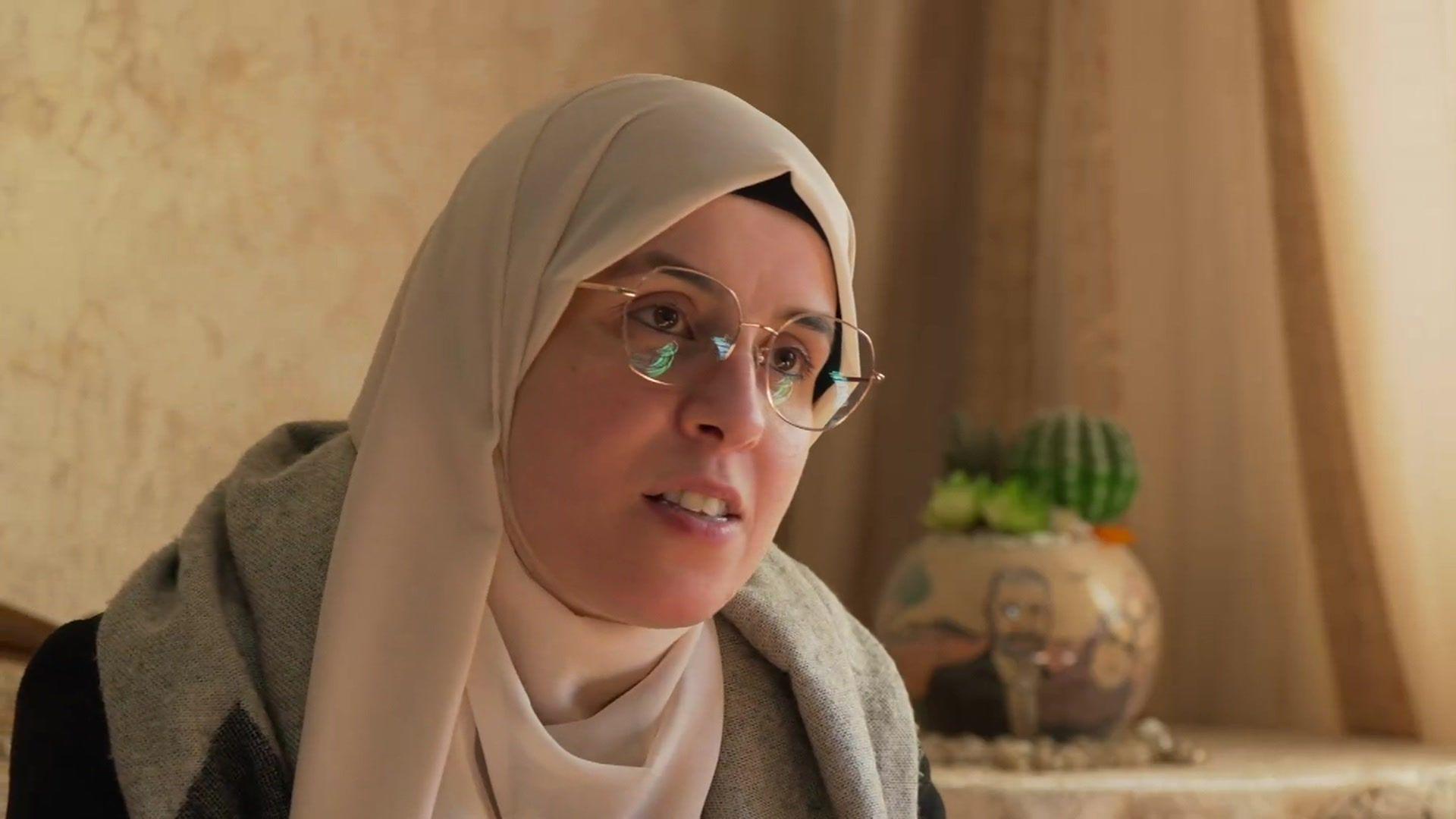What will anger at sight of gaunt hostages mean for a fragile ceasefire?
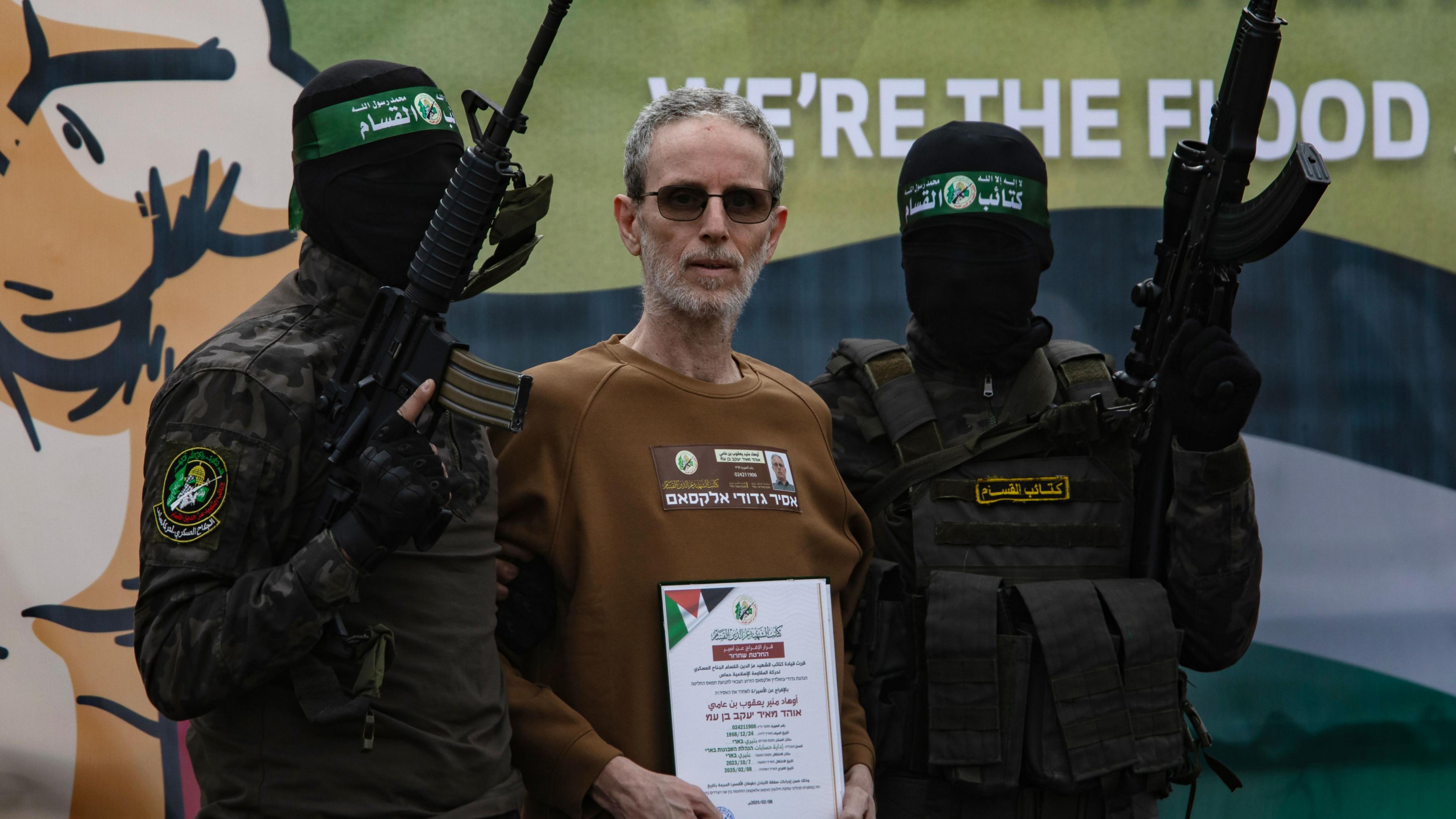
Ohad Ben Ami, 56, was among the three released on Saturday
- Published
The sight of Eli Sharabi being interviewed on stage, surrounded by Hamas fighters, has caused heartbreak and fury in equal measure amongst Israelis.
"How do you feel?" he is asked by a masked interviewer. "I feel very happy today to return to... my wife and daughters", he answers, seemingly unaware they were killed in Hamas's attack on Israel on 7 October 2023.
The scene was broadcast live around the world, the stage-managed handover of hostages, to send a message.
The ranks of armed fighters, the banner in Arabic, Hebrew and English declaring "We are the flood... the war's next day" - all filmed on modern camera equipment - says to the world they are still in charge in the Gaza Strip and intend to remain so.
In previous exchanges, Hamas have also sought to give the impression that they had taken good care of those they had kidnapped.
It was not possible this time.
All three men looked gaunt and sunken-eyed. As their images were broadcast into Tel Aviv's Hostages Square, the mood changed from one of celebration to anguish.
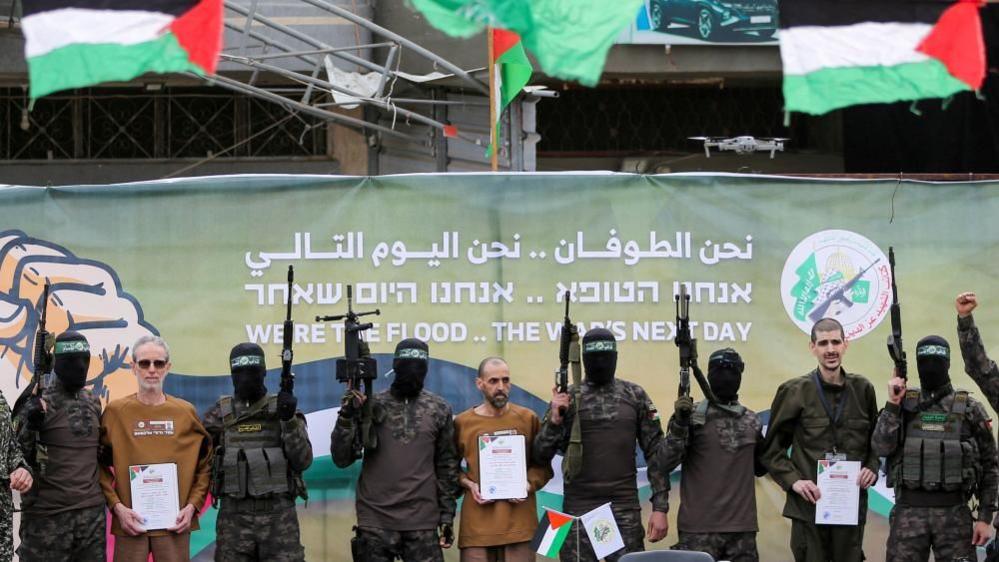
Armed and masked Hamas fighters posed with Ohad Ben Ami, Eli Sharabi, Or Levy before handing them over to the Red Cross
"It's complicated," said 21-year-old Ruth Senderovich, who was watching on the big screens. "It's the greatest joy that I've had in a while, and it's also devastating because you see men that were leaders of the family, they were fathers, and now you see broken men."
Prime Minister Benjamin Netanyahu said Israel "will not gloss over the shocking scenes", and that action would be taken accordingly, without specifying what that would be.
The International Committee of the Red Cross (ICRC), which facilitates the transfers, said it was "increasingly concerned about the conditions surrounding release operations" - calling for them to be "dignified and private".
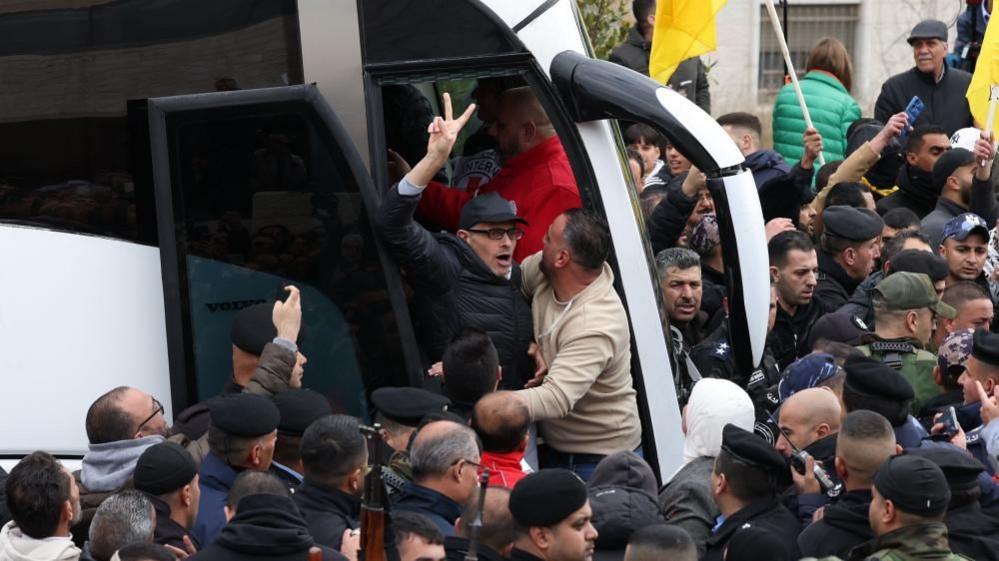
A released Palestinian prisoner shows a victory sign after arriving in Ramallah in the occupied West Bank
But it is not only Hamas who have come under fierce criticism for the condition of the people they have been releasing.
Shortly after the three hostages were freed, 183 Palestinians - some serving long sentences for their part in the killings of Israelis, others held without charge - left Israeli jails.
One of those being released was Jamal al-Tawil, the former mayor of al-Bireh. He has spent nearly two decades in and out of Israeli prisons, in part over allegations that he helped plot suicide bombings. Recently he had been on hunger strike to protest against his detention without charge.
His daughter, who was herself recently released from prison, claimed that he was beaten in the final moments before his release. He had to be carried from the bus to the hospital while connected to a ventilator.
According to the Palestinian Red Crescent, seven of those being released from Israeli jails needed hospital treatment following their imprisonment.
There have been numerous reports since 7 October 2023, accusing the Israeli authorities of abusing Palestinian prisoners.
The question now is what impact, if any, Saturday's releases will have on the fragile ceasefire deal.
Israel has said it is sending negotiators to Qatar to discuss "technical issues", before they begin talks around the next phase. It has also warmly welcomed the suggestion by US President Donald Trump that Gaza would be emptied of Palestinians.
Hamas, meanwhile, has accused Israel of a "lack of commitment" regarding the ceasefire, but said that the group is still ready to join any talks.
Hamas also released a slickly produced video of the release of the three hostages. Filmed in underground tunnels, apparently learning they are to be released. They speak to the camera, thanking God and then putting on uniforms with their own photos on them.
The release of the video was soon followed by a statement from the families asking for it not to be broadcast.
For all the anger about the condition of those being held, there was another conclusion that many have drawn from today. A deal to secure their freedom - and a permanent end to the fighting - cannot come soon enough.
For in the gaunt, haunted faces of those being freed, was written the cost of delay.
Related topics
- Published27 February
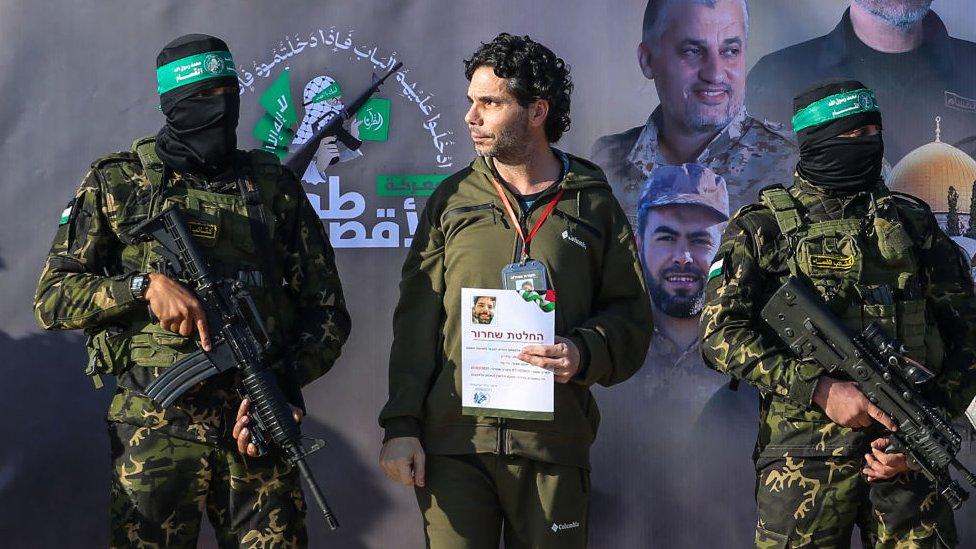
- Published5 February
